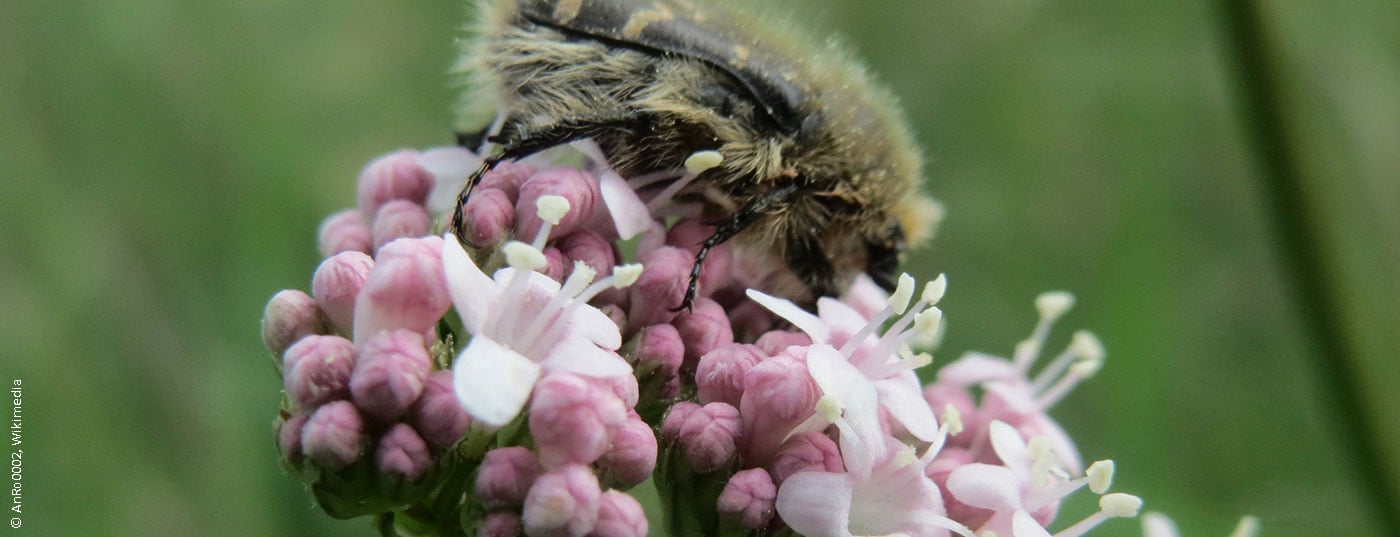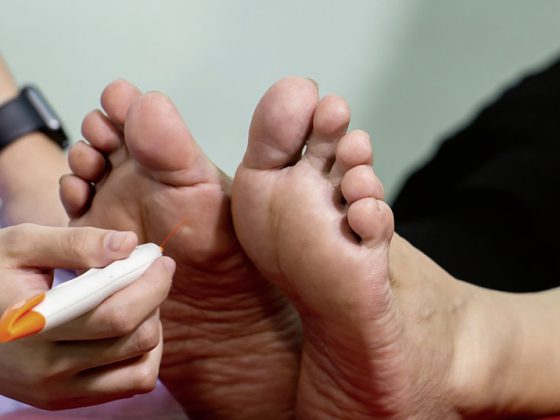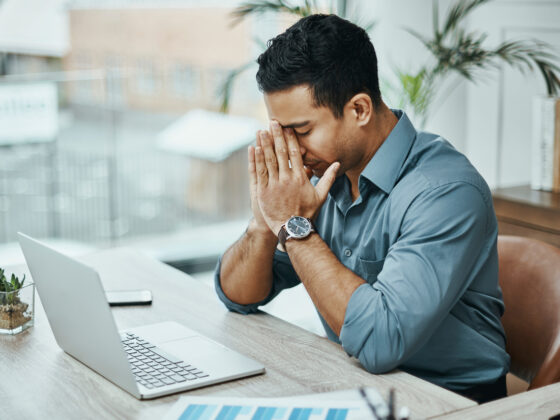Herbal sedatives have been used for generations to treat sleep disorders, nervousness or mental problems – with success. However, for reasons of evidence, one should rather rely on combination preparations.
There are many medicinal plants mentioned in the literature, which are used in folk medicine for nervousness, sleep disorders, states of agitation, anxiety and mood swings. These include exotics such as Centella asiatica (Indian pennywort), Scutellaria lateriflora (hellebore) or Echium amoenum (Persian borage). In the literature, however, one searches in vain for evidence-based proof of efficacy. On the other hand, the following herbal sedatives are very well known:
- Hops (Humulus lupulus)
- Melissa (Melissa officinalis)
- Passion flower (Passiflora incarnata)
- Valerian (Valeriana officinalis)
These can be called the “classics” of herbal sedatives. And these are recommended and sold in pharmacies all over the world, because their effectiveness is convincingly handed down by folk medicine. There can therefore hardly be any doubt that the efficacy is at least mild. But how evidence-based is the efficacy of these medicinal plants?
Valerian, the patriarch
Valerian is certainly the best known of the sedative medicinal plants, the patriarch of sedatives, so to speak. However, only one study was found in the literature demonstrating the efficacy of valerian roots in promoting sleep [1]. This meta-analysis, published in 2006, documents the efficacy and safety of valerian for sleep disorders.

And the others?
In the case of hops, the so-called hop cones (Lupuli flos PhEur/Lupuli strobulus), the dried, usually whole, female inflorescences of Humulus lupulus L., are used. The efficacy of hops has also been clinically confirmed [2], but not in terms of treating insomnia or nervousness, but as a remedy for anxiety and mood swings. There is no clinically relevant literature for passionflower and lemon balm. Overall, clinical studies demonstrating the efficacy of individual substances are rather scarce.
Combination preparations!
The situation is different with regard to the various combination preparations. It is interesting that all combination preparations contain valerian.
Valerian and lemon balm for sleep disorders: In 1996, Dressing and colleagues demonstrated with a placebo-controlled, randomized, double-blind trial that a combination preparation of valerian and lemon balm was significantly superior to placebo in patients with mild insomnia requiring therapy [3].
Valerian and hops for sleep disorders: In 2009, Koetter and colleagues published a randomized, double-blind, placebo-controlled prospective study. In a placebo comparison, the combination of valerian and hops showed a significant reduction in sleep latency in patients suffering from non-organic sleep disorders. Valerian alone did not reach significance in this study [4].
Valerian and lemon balm against stress: A 2006 study showed the effectiveness of a valerian and lemon balm combination against laboratory-induced stress. In this double-blind, placebo-controlled, randomized crossover study, 24 study participants received different doses of the herbal combination preparation and were then evaluated against placebo during laboratory-induced stress. The valerian-melissa group responded significantly better to stress than the placebo group [5].
Valerian, passion flower, lemon balm and butterbur against stress: Another interesting combination of herbal extracts against stress consists of valerian, passion flower, lemon balm and butterbur. Butterbur is a versatile medicinal plant, which used to be used against pain. In the meantime, only pyrrolizidine-free butterbur plants may be used. In 2018, a study was published that evaluated this combination versus placebo and no-treatment for induced stress. The combination group significantly reduced stress compared with placebo and no treatment [6].
Effective alternative
Valerian, hops, passion flower and lemon balm are the classics of herbal sedatives. Its folk medicine effectiveness against nervousness, insomnia, stress and anxiety has been reported for generations. Clinical studies with the individual plants are few. However, various clinical studies conducted with combination preparations provide sufficient evidence of efficacy. Therefore, such combination preparations offer themselves as effective and safe alternatives to corresponding synthetic preparations (tab. 1).

Literature:
- Bent S, et al: Valerian for sleep: a systematic review and meta-analysis. Am J Med 2006; 119(12): 1005-1012.
- Kyrou I, et al: Effects of a hops (Humulus lupulus L.) dry extract supplement on self-reported depression, anxiety and stress levels in apparently healthy young adults: a randomized, placebo-controlled, double-blind, crossover pilot study. Hormones (Athens) 2017; 16(2): 171-180.
- Dressing H, et al: Improvement of sleep quality with a high-dose valerian-melissa preparation. Psychopharmacotherapy 1996; 3(3): 123-130.
- Koetter U, et al: A randomized, double blind, placebo-controlled, prospective clinical study to demonstrate clinical efficacy of a fixed valerian hops extract combination (Ze 91019) in patients suffering from non-organic sleep disorder. Phytother Res 2007; 21(9): 847-851.
- Kennedy DO, et al: Anxiolytic effects of a combination of melissa officinalis and valeriana officinalis during laboratory induced stress. Phytother Res 2006; 20: 96-102.
- Meier S, et al.: Effects of a fixed herbal drug combination (Ze 185) to an experimental acute stress setting in healthy men. An exploratory randomized placebocontrolled double-blind study. Phytomedicine 2018; 39: 85-92.
HAUSARZT PRAXIS 2019; 14(7): 4-6











